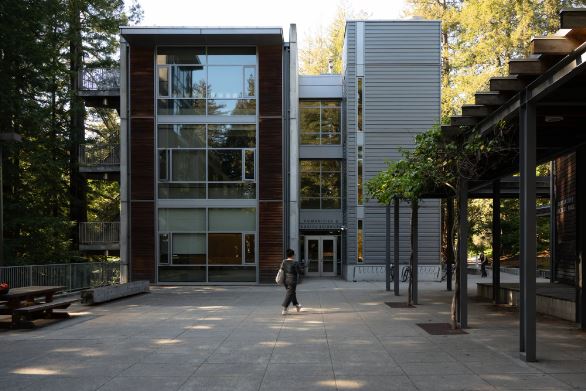Academic workers at the University of California, Santa Cruz, are set to go on strike starting Monday, in protest of the university system’s handling of pro-Palestinian demonstrations. This decision was announced on Friday by U.A.W. 4811, a union that is part of the United Auto Workers and represents about 48,000 graduate students and other academic workers across 10 University of California campuses and the Lawrence Berkeley National Laboratory.
The union includes approximately 2,000 members at Santa Cruz who work as teaching assistants, tutors, and researchers. According to Rafael Jaime, president of U.A.W. 4811, the walkout will not extend beyond June 30 but could still significantly disrupt coursework for the spring quarter, which concludes on June 13. Nearly 20,000 students were enrolled at the Santa Cruz campus last fall.
This announcement follows a decisive vote by University of California academic workers authorizing the union to call for a strike. The union argued that the university system had unilaterally and unlawfully changed policies regarding free speech, discriminated against pro-Palestinian speech, and created an unsafe work environment by allowing attacks on protesters, among other grievances.
The controversy intensified about two weeks ago when dozens of counterprotesters attacked a pro-Palestinian encampment at the University of California, Los Angeles, without police intervention. The next day, officers in riot gear dismantled the encampment and arrested more than 200 people.
The strike authorization vote allows for what is known as a “stand up” strike, enabling the union’s executive board to focus strikes on specific campuses or among particular groups of workers, rather than calling for a system-wide strike.
Jaime indicated that members at other U.C. campuses might also strike if the university system does not address their grievances. Many of these grievances were detailed in the union’s own unfair labor practice charge filed with the California Public Employment Relations Board.
University of California officials have pointed to the union’s bargaining contract, which states that “there shall be no strikes” that “interfere directly or indirectly with university operations.” However, the union contends that this clause does not apply in this case, as the strike pertains to unfair labor practices, which involve state regulations and are beyond the scope of traditional bargaining issues such as wages and benefits.
This impending strike underscores the escalating tensions between university officials and academic workers over issues of free speech and labor rights. As the situation develops, the impact on academic operations and student coursework remains a significant concern, with the potential for broader ramifications across the University of California system.

